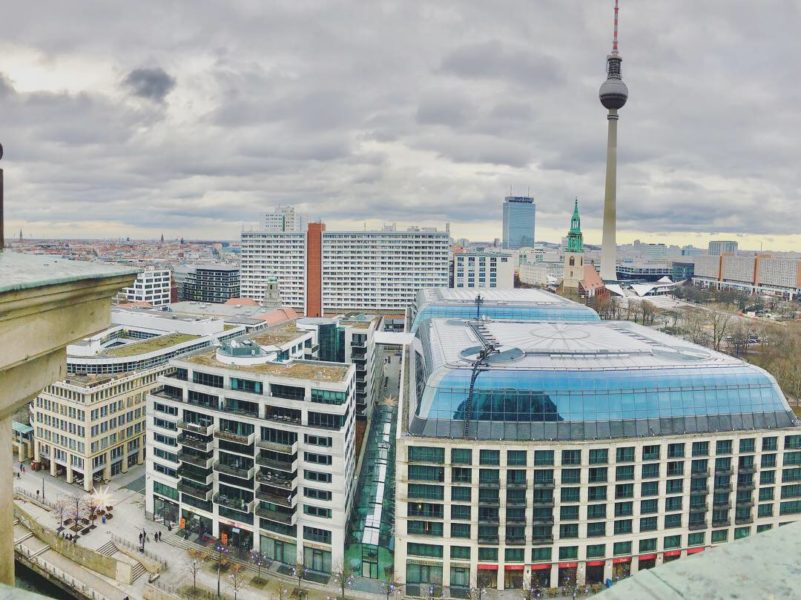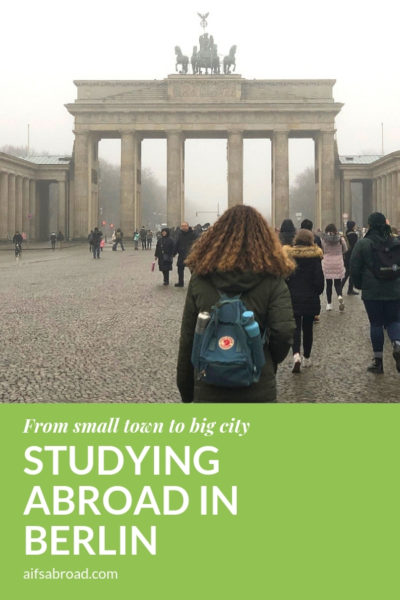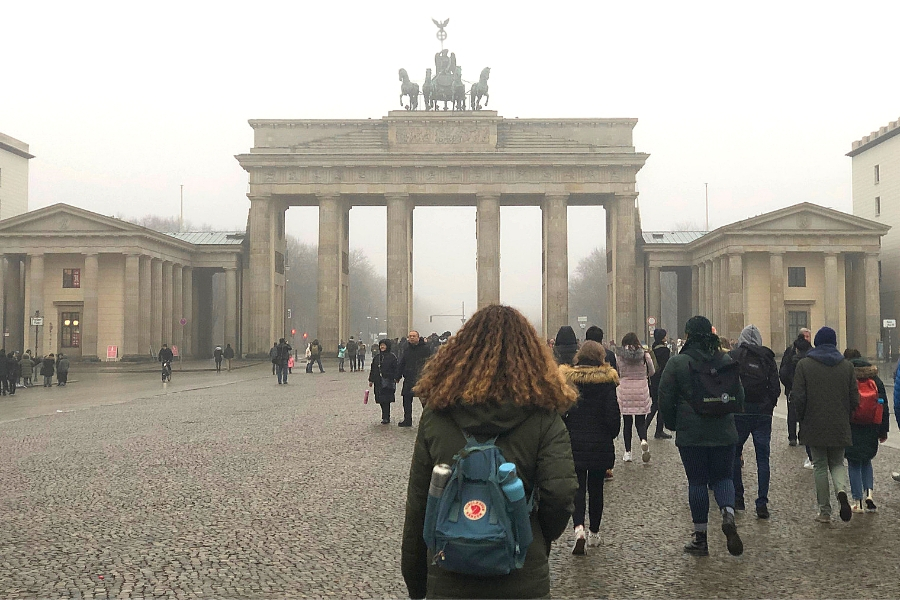I have lived my life until this point in two states, both of which have more cows than people: Wyoming and South Dakota (no, Wyoming is not a government conspiracy). My hometown has a population of roughly 30,000, and the town where I go to school has around 11,000. Suffice it to say, I’ve had little experience with life in the big city.
When I decided to study abroad in Berlin, Germany, I knew that I would be shocked by a new language, new food, and a new culture, but the most shocking part of all has been the difference between living in a rural area and living in the city.
Moving to a city of 3.5 million people has been both exhilarating and terrifying. Every day is full of new experiences, and new trials. How I get around, how I talk to people, and how I entertain myself have all changed. All of my comfortable Midwestern routines have been turned on their heads, and I’ve been forced to fundamentally reconsider the way that I live my life.
I would argue that the main difference between a rural area and a city lies in how one navigates their surroundings.
In Wyoming, there is little to no public transportation; there’s certainly no subway. Now, each morning I take a train three stops, then a bus five stops, in order to get to school. I’m so accustomed to hopping into my car and driving myself where I’d like that this can at times feel restricting. However, it ultimately frees up my time from having to drive myself, and, hey, when there’s traffic, I’m thankful for the trains! It’s also more environmentally friendly, as opposed to each individual driving their own vehicle everywhere.


Another major difference between the two regions is found in how people interact with one another.
In the Midwest, I’m accustomed to a sort of hyper-friendliness that permeates every interaction. In Berlin, if someone is overly friendly to me, I become suspicious. There’s a large difference between the two social environments. This is especially pronounced in a German city, because, while not rude, I’ve found the Germans care little for polite speech and definitely don’t stick around for small talk. This can leave someone from a rural area like me feeling lonely or alienated at first, but you soon become acclimated to a new notion of personal space and a new form of communication. It also forces you to develop your people skills to interact with people from a different culture.
Having easy access to shopping and entertainment is an incredible benefit to living in the city.
I’m accustomed to driving an hour or two to get to a good shopping mall, or longer to see a concert. Berlin has all of that and more readily accessible, making everyday a new adventure. Whether it’s going to the opera, seeing an art exhibit in town, a concert, or visiting a museum, there’s always something new to do. Even just walking around the city is exciting (people-watching is now one of my favorite past times), you’ll find countless little treasures, like the bookshop a couple of blocks from my apartment, or the cafe down the street that has great flat whites.
While there are certainly large differences between my life at home and my life in my home-away-from-home, I have fallen in love with living in the city. Berlin is an epicenter of culture and vibrance, and I wouldn’t change my experience for the world.
This post was contributed by Taylor Mowery, a student from Black Hills State University who is spending her spring semester studying abroad with AIFS in Berlin, Germany

